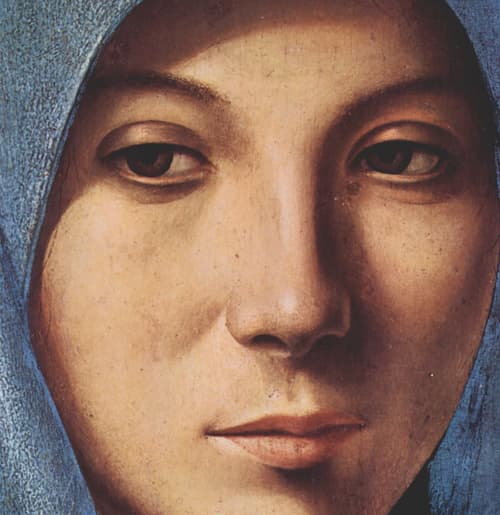The Devil's Advocate, Morris West (William Morrow & Co, 1959).
In The Devil’s Advocate, Morris West, who is better known for the novel that anticipated a Pope from the Eastern Bloc, The Shoes of the Fisherman, tells the story of a lonely but faithful British priest, Blaise Meredith. Monsignor Meredith is a dutiful assistant at the Sacred Congregation of Rites, the Vatican congregation that formerly governed both liturgy and the canonization process.
In the first pages we learn that Meredith has inoperable cancer in his gut. It will kill him within the year: he is still in his mid- forties. As he faces death, Meredith realizes that he has “never been hungry for anything.” His life has been passionless, he has “spent no anger, dispensed no charity” (13). Indeed, Meredith recognizes that “whatever virtue flowered out of his ministry was sacramental and not personal” (13-14).
Meredith’s death sentence is a severe mercy. The Prefect of the Congregation of Rites, knowing Meredith’s plight but also his interior need, picks him to investigate the cause of a potential saint, Giacomo Nerone, in southern Italy. Nerone was murdered by the Communists during the dark end days of World War II. A spontaneous cult has arisen around this putative martyr, and a bishop from the region of Calabria has requested an investigation by Rome. Meredith is just the man for the job: sober, analytical, precise. The worldly-wise Prefect also knows that this final mission will be good for Meredith and his priesthood.
So Meredith travels to impoverished Calabria to investigate Nerone’s life as the Promoter of Faith, the Devil’s Advocate. Meredith is to poke holes into the cause for Nerone’s canonization.
Through this journey into another man’s life, Meredith will learn much more than simply whether Nerone was a saint. He will learn about himself and about the mercy of Christ, by coming into contact with the People of God in ways that his sheltered Roman existence has previously prevented. In this poor diocese, Meredith is brought in contact with a colorful cast of characters: a cultured and holy bishop; Nerone’s mistress Nina Sanduzzi, who bore him a son, Paolo, and who is convinced of her former lover’s sanctity; a scandalous and compromised parish priest; the equally benevolent and wicked Countess of the region; a predatory artist trying to seduce Paolo; and an agnostic Jewish doctor, Aldo Meyer, who despite his desire to run from his culturally impoverished patients, stays and serves them faithfully.
Each in some way was connected to Nerone, each has motives to hide or tell his story. West seamlessly weaves their accounts together, in order to reveal Nerone, but also to reveal each character to the reader. All the while, West’s novel demonstrates Meredith’s growth against the horizon of death. He is constantly reminded, in both word and deed, that the “Church is a family of the faithful, not simply a bureaucracy of believers” (73). He learns that holiness, mercy, and grace are incarnated in our daily encounters. They do not happen in a vacuum. In short, Meredith is reminded of what he has forgotten over his years behind a desk: that Christianity is incarnational, concrete, found in the prosaic, the everyday. It is only as death approaches that the Church’s teachings—which Meredith has faithfully imparted—take on flesh for him.
For instance, the local bishop is a reformer trying to show humanity to his flock. He uses his estate to create a working orange farm and vineyard. Meredith is puzzled. “What have oranges got to do with the human soul?” he asks (109). The bishop answers:
“Everything. You can’t cut a man in two and polish up his soul while you throw his body in the trash heap. If the Almighty had designed him that way, he would have made him a biped who carried his soul in a bag round his neck. If reason and revelation mean anything they mean that a man works out his salvation in the body by the use of material things” (109).
West’s brilliance comes in that he shows how the sacred and profane mix together, coexisting simultaneously within the Church. A saint’s cause can have both political and religious implications. A compromised priest can still be an instrument of grace. A saint may have sinned greatly: indeed, his conversion is an even greater sign of God’s grace and forgiveness. These are the lessons learned by Msgr. Meredith as he investigates the background and story of Nerone. And in this investigation and his ministry to the simple people of Calabria, Meredith experiences true spiritual fatherhood, for the first time in his life.
To say more of the plot would reveal too much. But West’s novel is an arresting spiritual tale. His characters are neither plaster saints nor plaster sinners. They are free actors tempted by sin, invited to grace. In a time of great crisis for the Church, this novel is a revelation and a consolation. Even in the midst of great scandal and brokenness, Christ is always at work.
Conor B. Dugan is a husband, father of four, and attorney who lives in Grand Rapids, Michigan.
